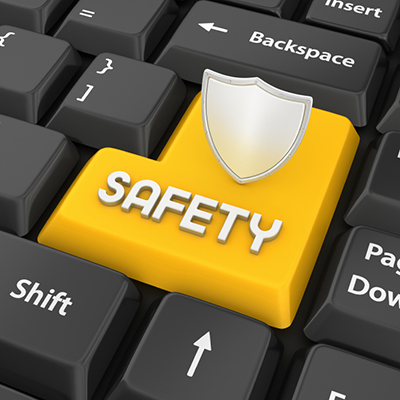Celebrate National Internet Safety Month
 Get ready to post your party photos on Instagram because The National Cyber Security Alliance is recognizing June as National Internet Safety month.
Get ready to post your party photos on Instagram because The National Cyber Security Alliance is recognizing June as National Internet Safety month.
This is no big deal for teachers and students living in the virtual school world because they celebrate Internet safety every day. However, for the rest of you, I offer up a few helpful tips to keep you safe online (tips courtesy of the new Social Media course offered by Florida Virtual School).
Tip #1 – Evaluate your sources.
• Cross-check the information. Ensure that you are able to find it in more than one place.
• Locate the copyright. Examine when the information was last updated.
• Seek out the creator of the information. Identify his or her credentials.
• Find clues in the domain. Sites ending in .org, .gov, or .edu are the most credible. Sites ending in .com or .net require additional evaluation.
• Trust your instincts. Information that sounds too good to be true usually is. Would you share this information with others?
• Judge a book by its cover. If a website appears sloppy and unorganized, that’s a clue the information may not be up to par. Proceed with caution.
• Identify traces of bias. Does the author have an agenda? Take bias into account when evaluating and sharing information.
• Understand the context of the story. Without context, there can be no credibility.
• Listen to your gut. If it sounds too good to be true…
Tip #2 – Say no to cyberbullying!
If you or someone you know is dealing with a cyberbully do the following:
• Identify the cause. See if you’re able to talk to the bully face to face to sort the issues out.
• Ignore or block the bully. Don’t give them the attention they want.
• Ask for advice. Students should talk to a trusted adult, parent, or teacher.
• Save the evidence, in case you need to prove you’re being bullied.
• Change contact information, such as your phone number, email address, or screen name.
• Report the bully. Tell a parent, a teacher, or in severe cases, the police.
• Don’t fight back. If you retaliate, you may also be at fault for cyberbullying.
• Think before you type. Never say anything on social media that you wouldn’t be comfortable seeing printed on a 100-foot billboard.
If you or someone you know is being cyberbullied, take a stand. Here’s how you can report it: http://www.cyberbullying.info/resources/report.php
Tip #3 – Consider the content you share.
What you put out there on social media tends to stay put. So it’s wise to think before you post, consider your audience, and avoid any negative off-the-cuff comments.
Pixels aren’t biodegradable. So chances are that embarrassing photo will be hanging around long enough for your future grandchildren to eventually find.
While it’s easy to upload and delete your own posts or photos, it’s nearly impossible to delete what others post about you (unless you’re a password hacker). So think twice about how you interact with others and whom you let interact with you.
Please feel free to share any Internet safety tips you might have.
Post by John Logan, Former Vice President of Curriculum Innovation for FLVS

Where can I find out more about the new FLVS social media course?
The course will be launching in December of this year! We will be sure to post more info about it on our blog, so stay tuned.
Each week during this month has been assigned a theme by the National Safety Council (NSC) which covers a wide variety of critical safety concerns such as preventing slips and trips and even going into ergonomics, which can prevent repetitive stress injuries while improving employee productivity. – See more at: http://www.seton.com/blog/2013/06/celebrate-national-safety-month-this-june#sthash.odBdzVqx.dpuf